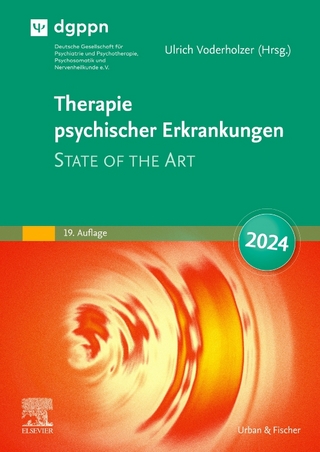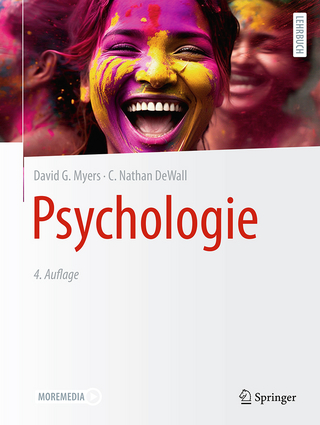
Management of Complex Treatment-resistant Psychotic Disorders
Cambridge University Press (Verlag)
978-1-108-96568-2 (ISBN)
This full-color, practical handbook provides a concise, evidence-based psychopharmacological approach to the management of complex treatment-resistant psychotic disorders. Part I focuses uniquely on topics and strategies relevant to treating this challenging patient population. These approaches go beyond standard guidelines while adhering to research and clinically derived data. Part II provides a concise array of information regarding those classes of medications most commonly used when treating complex treatment-resistant psychotic disorders. Each medication guide contains sections including mechanisms of action, typical treatment response, monitoring, dosing and kinetics, medications to avoid in combination/warnings, and take-home pearls. Part III offers tips in brief appendix chapters for managing common issues ranging from loading lithium and valproic acid to the treatment of acute psychomotor agitation. An essential resource for psychiatrists, forensic clinicians, psychiatric trainees, and all mental health professionals involved with, or interested in, the treatment of challenging psychotic disorders.
Michael A. Cummings is Clinical Professor of Psychiatry at the University of California, Riverside, Associate Clinical Professor of Psychiatry at the University of California, Irvine and Senior Psychiatrist Specialist at the California Department of State Hospitals. Stephen M. Stahl is Adjunct Professor of Psychiatry at the University of California, San Diego, Clinical Professor of Psychiatry and Neuroscience at the University of California, Riverside, and Honorary Visiting Senior Fellow in Psychiatry at the University of Cambridge.
Part I. Treatment Strategies: 1.01. Approaches to positive Psychotic symptoms; 1.02. Use of plasma levels in Antipsychotic and Mood Stabilizer treatment; 1.03. Advantages of long-acting injectable Antipsychotics; 1.04. Approach to Schizophrenia Spectrum treatment-resistant patients; 1.05. Approach to depressed or suicidal Schizophrenia Spectrum patients; 1.06. Approach to persistent aggression and violence in Schizophrenia Spectrum Disorders; 1.07. Approach to treatment of Bipolar Diathesis in Schizophrenia Spectrum patients; 1.08. Approach to Anxiety in Schizophrenia Spectrum patients; 1.09. Approach to Insomnia and Sleep Disturbance in Schizophrenia Spectrum disorders; 1.10. Approach to Psychosis in children and adolescents; 1.11. Electro-convulsive therapy and other Non-pharmacological treatments; 1.12. Approach to substance use disorders in Schizophrenia Spectrum Disorders; 1.13. Approaches to Behavioral Disturbances and Dementia and TBI patients; Part II. Medication Reference Tables: First-generation (Typical) Antipsychotics: 2.01. Chlorpromazine; 2.02. Fluphenazine; 2.03. Haloperidol; 2.04. Loxapine; 2.05. Perphenazine; 2.06. Thiothixene; 2.07. Trifluoperazine; Second-generation (Atypical) Antipsychotics: 2.08. Asenapine; 2.09. Clozapine; 2.10. Iloperidone; 2.11. Lumateperone; 2.12. Lurasidone; 2.13. Olanzapine; 2.14. Paliperidone; 2.15. Quetiapine; 2.16. Risperidone; 2.17. Ziprasidone; Dopamine Partial Agonist Antipsychotics (Arias): 2.18. Aripiprazole; 2.19. Brexpiprazole; 2.20. Cariprazine; Medications for Motor/Neurologic Adverse Effects: 2.21. Amantadine; 2.22. Benztropine; 2.23. Diphenhydramine; 2.24. Trihexyphenidyl; Mood Stabilizers: 2.25. Carbamazepine; 2.26. Lamotrigine ; 2.27. Lithium; 2.28. Valproic Acid; Selective Serotonin Reuptake Inhibitor (SSRI) Antidepressants: 2.29. Citalopram; 2.30. Escitalopram; 2.31. Fluoxetine; 2.32. Fluvoxamine; 2.33. Paroxetine; 2.34. Sertraline: SSRI/5HT-1 Partial Agonist Antidepressants: 2.35. Vilazodone; 2.36. Vortioxetine; Serotonin/Norepinephrine Reuptake Inhibitor (SNRI) Antidepressants; 2.37. Desvenlafaxine; 2.38. Duloxetine; 2.39. Levomilnacipran; 2.40. Venlafaxine; Mixed Mechanism Antidepressants: 2.41. Bupropion; 2.42. Mirtazapine; 2.43. Trazodone; Tricyclic Antidepressants: 2.44. Amitriptyline; 2.45. Clomipramine; 2.46. Desipramine; 2.47. Doxepin; 2.48. Imipramine; 2.49. Nortriptyline; Monoamine Oxidase Inhibitor (MAOI) Antidepressants: 2.50. Isocarboxazid; 2.51. Moclobemide; 2.52. Phenelzine; 2.53. Transdermal Segeliline; 2.54. Tranylcypromine; Anxiolytics: 2.55. Alprazolam; 2.56. Buspirone; 2.57. Clonazepam; 2.58. Diazepam; 2.59. Hydroxyzine; 2.60. Lorazepam; Sedatives: 2.61. Diphenhydramine; 2.62. Eszopiclone; 2.63. Hydroxyzine; 2.64. Lorazepam; 2.65. Oxazepam; 2.66. Temazepam; 2.67. Zaleplon; 2.68. Zolpidem; Circadian Regulators: 2.69. Melatonin; 2.70. Ramelteon; 2.71. Tasimelteon; Stimulants: 2.72. Atomoxetine; 2.73. Dextroamphetamine; 2.74. Lisdexamphetamine; 2.75. Methylphenidate; 2.76. Mixed Amphetamine Salts: Histaminic Stimulants: 2.77. Armodafinil; 2.78. Modafinil; Cognitive Agents: 2.79. Dextromethorphan/quinidine; 2.80. Donepizil; 2.81. Galantamine; 2.82. Memantine; 2.83. Rivastigmine; Alpha2-adrenergic Agonists: 2.84. Clonidine; 2.85. Guanfacine; Appendices: 3.01. Optimal Antipsychotic Plasma Concentration Ranges; 3.02. Optimal Mood Stabilizer Plasma Concentration Ranges; 3.03. Formulas for QT Interval Correction; 3.04. Common Cytochrome P-450 Inducers and Inhibitors; 3.05. Management of Constipation; 3.06. Child-Pugh Hepatic Function Scoring; 3.07. Loading of Lithium and Valproic Acid; 3.08. Treatment of Prolactin Elevation; 3.09. A Select List of Foods High in Tyramine; 3.10. Medications that Present Risk for Serotonin Syndrome when Combined with MAOIs; 3.11. Selected Treatment of Psychomotor Agitation.
| Erscheinungsdatum | 20.08.2021 |
|---|---|
| Zusatzinfo | Worked examples or Exercises |
| Verlagsort | Cambridge |
| Sprache | englisch |
| Maße | 137 x 227 mm |
| Gewicht | 880 g |
| Themenwelt | Geisteswissenschaften ► Psychologie ► Klinische Psychologie |
| Geisteswissenschaften ► Psychologie ► Psychosen | |
| Medizin / Pharmazie ► Medizinische Fachgebiete ► Pharmakologie / Pharmakotherapie | |
| Medizin / Pharmazie ► Medizinische Fachgebiete ► Psychiatrie / Psychotherapie | |
| ISBN-10 | 1-108-96568-7 / 1108965687 |
| ISBN-13 | 978-1-108-96568-2 / 9781108965682 |
| Zustand | Neuware |
| Haben Sie eine Frage zum Produkt? |
aus dem Bereich


